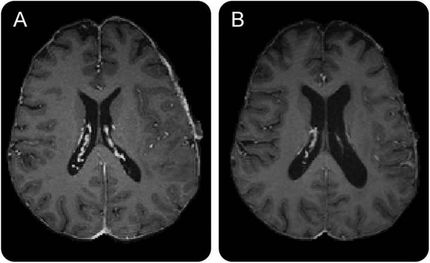Tiny RNA has big impact on lung cancer tumors
Researchers from Yale University and Mirna Therapeutics, Inc., reversed the growth of lung tumors in mice using a naturally occurring tumor suppressor microRNA. The study reveals that a tiny bit of RNA may one day play a big role in cancer treatment, and provides hope for future patients battling one of the most prevalent and difficult to treat cancers.
"This is the first time anybody has shown a positive effect of microRNAs in shrinking lung cancer," said Frank Slack, Ph.D., co-senior author of the paper, researcher at the Yale Cancer Center and professor of molecular, cellular & developmental biology.
The tumors in mice with non-small cell lung cancer shrank after the Yale team delivered an intranasal dose containing a type of micro-RNA called let-7, the authors reported in Oncogene. MicroRNAs are small bits of genetic material most often associated with transmission of information encoded in DNA. However in the past decade microRNAs have been shown to play crucial roles in gene regulation and/or gene silencing
The Yale team also found that mice without let-7 developed cancer, supporting their hypothesis that the microRNA acts as a tumor suppressor. The tumors in mice that received let-7 were not eliminated, but reduced by 66 percent, the study showed. The team is currently studying whether let-7 therapy in combination with chemotherapy and radiation can induce full remission.
Slack noted let-7 is absent in many cancers and acts upon a gene known to play a role in about a quarter of all human cancers.
"We hope it will be valuable in the treatment of many other forms of cancer," he said.
Topics
Organizations
Other news from the department science

Get the life science industry in your inbox
By submitting this form you agree that LUMITOS AG will send you the newsletter(s) selected above by email. Your data will not be passed on to third parties. Your data will be stored and processed in accordance with our data protection regulations. LUMITOS may contact you by email for the purpose of advertising or market and opinion surveys. You can revoke your consent at any time without giving reasons to LUMITOS AG, Ernst-Augustin-Str. 2, 12489 Berlin, Germany or by e-mail at revoke@lumitos.com with effect for the future. In addition, each email contains a link to unsubscribe from the corresponding newsletter.



















































